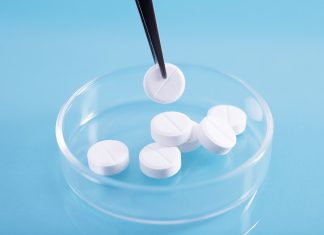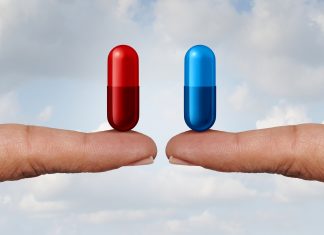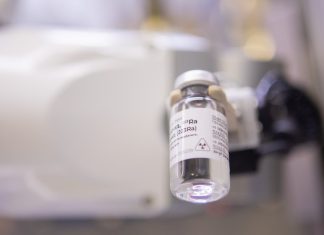In late December 2021, Russian pharmaceutical company Pharmadiol (a resident of Skolkovo) initiated the registration procedure for an original drug it had developed, dioxaban (TN Dimolegin), which is a direct competitor to Bayer’s Xarelto and Pfizer’s Eliquis, which, along with other anticoagulants, are included in the coronavirus treatment protocols. These two drugs set apart from oral anticoagulants of past generations in convenience and safety of use: they do not require constant monitoring of the prothrombin index and are less likely to cause bleeding, says Alexey Erlich, cardiologist at the City Hospital No. 29 of Moscow Healthcare Department. However, according to the cardiologist, the WHO has not approved these drugs as beneficial for COVID-19 patients.
Pharmadiol has already completed clinical trials of the drug (code DD217) on 450 patients with coronavirus infection. It follows from the Russian clinical trials registry that Pharmadiol completed the first safety trial back in 2018. The participants were 48 healthy volunteers.
Nikolay Bespalov, Development Director of RNC Pharma, believes that the company will not resort to the accelerated registration procedure for emergency use (provided for in Government Order No. 441). Nikolay Kryuchkov, a healthcare expert, does not agree with him. According to him, the trial of Dimolegin on coronavirus patients indirectly shows the intention to obtain a registration certificate quickly. Nevertheless, Pharmadiol has already completed a sufficient number of trials to submit the drug according to the general procedure. Kryuchkov also adds that the conducted tests comparing dioxaban with heparins (Sanofi’s Clexane and Pfizer’s Fragmin) may indicate that the company is targeting its product at the hospital segment, while Xarelto and Eliquis are in great demand in outpatient settings.
As the DSM Group calculated, the volume of commercial sales of Xarelto and Eliquis for eleven months of last year alone (more complete data are not available) amounted to 24 billion rubles in total, while for the same period in 2020 it was 16.1 billion rubles. The budget segment of the market showed much greater dynamics: from January to November last year, state customers allocated 16.9 billion rubles for the purchase of these two drugs, which is almost three times more than in the same period of 2020. According to analysts’ forecasts, the need for these drugs will only grow over time.
During the pandemic, other pharmaceutical companies, including Russian ones, have decided to enter the market of modern oral anticoagulants. As the data from the State Register of Medicines show, since the beginning of 2020, permits for 28 clinical trials of generics of rivaroxaban have been issued to such companies as Alium (part of Binnopharm Group, a pharmaceutical company of Joint-Stock FInancial Corporation Sistema), Egis and Tekhnologii Lekarstv (R-Pharm). Three companies have submitted dossiers for the registration of generics of the drug. Only two companies, Stada and Biserno, are preparing their versions of apixaban. So far, both generics are at the bioequivalence trials stage.
According to Sergey Shulyak, Pharmadiol is likely to take over a significant foreign competitors’ share of foreign competitors, since it is likely to offer a 20-25% lower price. The Russian origin of the molecule will also give the company an advantage in public procurement. According to the expert, even without the pandemic factor, there is a large unmet demand for these drugs, and the emergence of new players in the segment will mean the growth of this market in kind (in packages).




